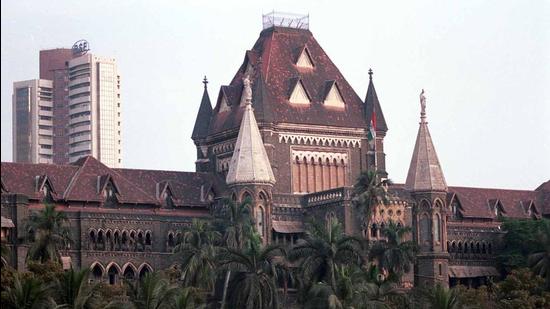IT Rules: Bombay HC stays 2 clauses, says people would be starved of liberty of thought
People would be starved of the liberty of thought and feel suffocated to exercise their right of freedom of speech and expression, if they are made to live in the times of content regulation on the Internet with the code of ethics hanging over their head as the Sword of Damocles, the Bombay high court (HC) said on Saturday while staying two clauses of the Information Technology (Intermediary Guidelines and Digital Media Ethics Code) Rules, 2021
People would be starved of the liberty of thought and feel suffocated to exercise their right of freedom of speech and expression, if they are made to live in the times of content regulation on the Internet with the code of ethics hanging over their head as the Sword of Damocles, the Bombay high court (HC) said on Saturday while staying two clauses of the Information Technology (Intermediary Guidelines and Digital Media Ethics Code) Rules, 2021.

“This regime would run clearly contrary to the well-recognised constitutional ethos and principles,” said the division bench of chief justice Dipankar Datta and justice Girish Kulkarni while staying clauses (1) and (3) of Rule 9 of the IT Rules.
Rule 9 (1) required publishers to observe the code of ethics laid down under the IT Rules. Rule 9(3) provided for a three-tier mechanism – self-regulation by the publishers, regulation by self-regulating bodies of the publishers and oversight mechanism by the Centre – for ensuring observance of the code of ethics and for addressing grievances made in relation to the publishers.
The interim order came on a petition filed by Agij Promotion of Nineteenonea Media Pvt Ltd, which owns and operates digital news web portal The Leaflet, and a public interest litigation filed by Mumbai-based journalist Nikhil Wagle.
They had moved HC challenging the validity of the new IT Rules, contending that the rules are ex-facie draconian, arbitrary and patently ultra vires the provisions of the parent legislation – the IT Act and the provisions of Articles 14, 19 (1) (a) and 19 (1) (g) of the Constitution which guarantee fundamental freedoms to the citizens.
HC accepted their contentions and held that Rules 9 (1) and 9 (3) infringe on fundamental freedoms of the petitioners.
“Dissent in democracy is vital,” said the bench. “For proper administration of the state, it is healthy to invite criticism of all those who are in public service for the nation to have a structured growth, but with the 2021 Rules in place, one would have to think twice before criticising any personality, even if the writer/editor/ publisher may have good reasons to do so” the bench added.
HC said the indeterminate and wide terms of the new IT Rules bring about a
“chilling effect” qua the right of freedom of speech and expression of writers/ editors/publishers because they can be hauled up for anything if the inter-departmental committee (to be set under the Rules) so wishes.
“The 2021 Rules are, thus, manifestly unreasonable and go beyond the IT Act, its aims and provisions,” said the bench.
The court added that allowing the operation of the 2021 Rules in its form and substance to operate would result in the writer/editor/ publisher standing the risk of being punished and sanctioned, should the inter-departmental committee be not in favour of criticism of any public figure.
“It is, therefore, quite possible that the writer/editor/publisher on contravention of the provisions of clause (1) of Rule 9 of 2021 Rules, but without even transgressing the boundaries set by clause (2) of Article 19 of the Constitution, may expose himself/itself to punishment or sanction under the 2021 Rules.”
HC concluded that allowing Rule 9 as it is “would generate pernicious effects” and therefore, stayed operation of Rules 9(1) and 9(3).
The bench also found the two rules ultra vires the provisions of the IT Act, as the Rules introduced measures for contravention of provisions of two completely different enactments – the Press Council of India Act and the Cable Television Network Act – by introducing the code of ethics for publishers of the news portals, online news aggregators etc.
HC, however, refused to stay Rule 7 of the new IT Rules which seeks to withdraw the protection granted to intermediaries under section 79 (1) of the IT Act.
Stay updated with all the Breaking News and Latest News from Mumbai. Click here for comprehensive coverage of top Cities including Bengaluru, Delhi, Hyderabad, and more across India along with Stay informed on the latest happenings in World News.
Stay updated with all the Breaking News and Latest News from Mumbai. Click here for comprehensive coverage of top Cities including Bengaluru, Delhi, Hyderabad, and more across India along with Stay informed on the latest happenings in World News.





